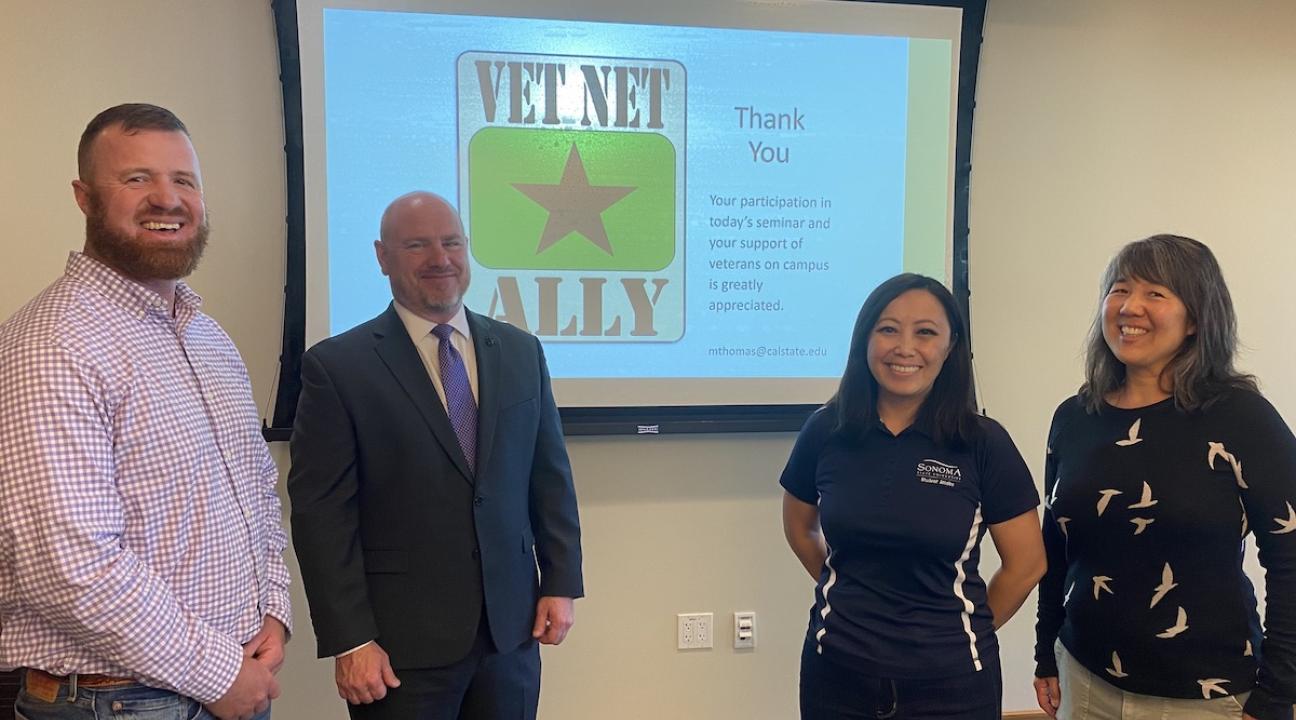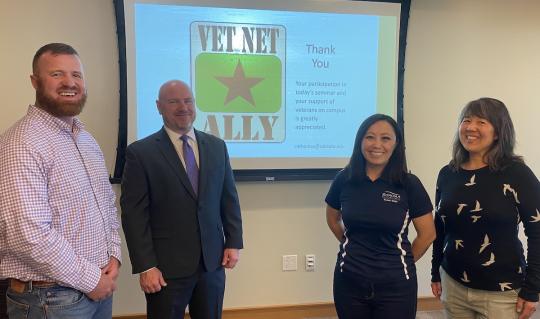Educating Allies for Veterans
“How can we create a wider circle of understanding and visible support for veterans at Sonoma State?”
With that goal in mind, the Military and Veteran Resource Center (MAVRC) sponsored a VET NET Ally seminar presented by CSU Director of Veteran Affairs, Dr. Marshall Thomas on October 12, 2023.
“We want all SSU students to feel both represented and known. So we offer opportunities for everyone to learn more about the varied cultures we have here” said Khou Yang-Vigil, Director of Equity & Access Programs.
Military life has a unique culture, parts of which can hamper veterans' adjustment to campus norms. Given the right-and-wrong nature of military training, veterans may be unused to classes where there are open-ended discussions or they are asked for their candid opinions. Having followed a chain of command, vets might shy away from advocating for themselves if they run into a roadblock with someone they perceive as an authority – even when it’s in their best interests to do so.
“Because vets are used to being in the position of serving and addressing situations for others, we have a hard time asking for help,” said veteran Keith Tucker.
“As a veteran myself, I’m committed to assisting in the transition from service member to civilian and/or college student. I try to meet the students where they’re at, whether they’re continuing or a prospective student,” said Yvonne Kang-Lopez, Veterans Services Advisor. “This transition is a major change to the service member, and I want to help provide the college experience they’ve been dreaming about.”
While veterans might feel isolated because relatively few people on campus have their same background, they also might be reluctant to self-identify. If that is the case, allies are expected to maintain privacy about a veteran’s status.
Tips for building rapport with veterans include asking specific questions about the person’s experience (e.g., “What branch did you serve in?” or “When did you come home?) rather than asking about the military or vets in general. Thomas stressed not to ask questions about the particulars of someone’s deployment or about war.
Some stereotypes that Thomas and others hope to debunk: Not all veterans are troubled or have PTSD, not all veterans were in combat (for many it was a job), and even if they suffered hardships, the vast majority of veterans (89%, according to a large-scale Kaiser/Washington Post survey of recent vets) would choose to enlist again if given the chance to do it over.
To advance a visible network of allies for veterans, VET NET Ally stickers and pins were given to participants.
Shown in photo: (l-r) Michael Ergo, Director of North Bay Vet Center; Dr. Marshall Thomas, CSU Director of Veteran Affairs; Khou Yang-Vigil, Director of Equity & Access Programs; and Yvonne Kang-Lopez, Veterans Services Advisor



